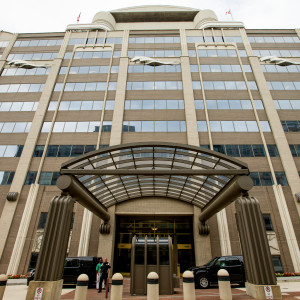The Federal Communications Commission failed to renew an extension for small internet providers exempting them from transparency requirements related to net neutrality Friday.
Under the exemption that expired at the close of business Thursday, internet service providers with 100,000 or fewer subscribers had immunity from requirements to disclose information including monthly data charges, promotional rates, data caps and network performance mandated under the 2015 Open Internet Order.
Following the FCC’s open meeting Thursday, outgoing Democratic Chairman Tom Wheeler told reporters he was working on an extension with commissioners but that there was disagreement over the details.
That dissent is presumably by the FCC’s two Republican commissioners, who want a change to the definition of small providers to those with 250,000 or fewer subscribers. Wheeler implemented the first exemption when the net neutrality rules were passed in February 2015 and extended it for another year last December with the backing of his two fellow Democratic commissioners.
“Last night, the small business exemption from the Title II Net Neutrality Order’s expanded reporting requirements expired,” Republican Commissioners Ajit Pai and Michael O’Rielly said Friday. “We worked hard to reach a consensus with our Democratic colleagues that would have prevented the exemption from lapsing. Unfortunately, those efforts did not bear fruit and now thousands of our nation’s smallest and most competitive internet service providers are worried that they will be subject to unnecessary, onerous, and ill-defined reporting obligations.”
After Americans elected Republican Donald Trump as the next president in November, Senate Republicans warned Wheeler against passing any proposals along partisan lines. Wheeler acquiesced, saying any proposal objected to by any commissioner during the administrative transition wouldn’t be advanced, resulting in the net neutrality exemption ending up on the unfinished pile with the rest of Wheeler’s year-end agenda.
While the requirements have yet to take effect, small providers expressed concern when the deadline to renew the exemption passed.
On Wednesday several trade groups representing small internet providers warned commissioners in a letter that “to comply with enhanced network performance requirements, some small providers would have to spend tens of thousands of dollars to upgrade their network equipment or pay a third party to take granular network measurements.”
“Each of our associations has explained why complying with new regulatory burdens will harm our members, including because these small providers will incur increased legal and consultant fees,” The Rural Broadband Association, American Cable Association, Competitive Carriers Association and Wireless Internet Service Providers Association (WISPA) wrote.
Alex Phillips, president of WISPA, said he was “frustrated” by the FCC’s lack of consensus.
“We urge the commissioners to continue to work together to reinstate the exemption at the earliest possible time,” Phillips said in a Multichannel report. “Our members want to ensure that the exemption – adopted in February 2015, extended in December 2015, strongly supported on a bipartisan basis in the House and Senate – will continue to remain in place.”
The House of Representatives unanimously passed a bill earlier this year granting the exemption to providers with 250,000 or fewer subscribers for five years. A Senate subcommittee passed the same bill, which has yet to go before the full chamber.
Providers likely have little to worry about. Republicans, who will take control of the agency in January, have already expressed their intention to begin rolling back significant portions of the 2015 Open Internet Order, including “rules that are holding back investment, innovation, and job creation,” Pai said last week.
In their joint statement Friday, Republican commissioners said they “remain hopeful that a consensus exemption can still be achieved at the commission in the months ahead in addition to reviewing the application of the overall burdens themselves.”

